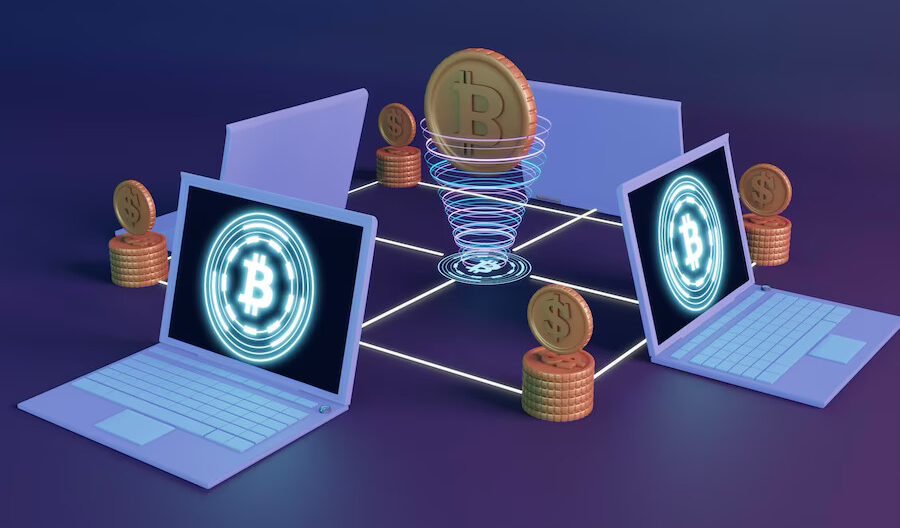Reducing Global Remittance Fees with Bitcoin
- 1 Understanding the Current Remittance Landscape
- 1.1 The Promise of Bitcoin for Remittances
- 1.1.1 Low Transaction Fees and Fast Transactions
- 1.1.2 Accessibility and Inclusion
- 1.1.3 Exchange Rate Stability
- 1.2 Overcoming Challenges and Embracing Change
- 1.2.1 Regulatory Hurdles
- 1.2.2 Education and Awareness
- 1.2.3 Infrastructure Development
- 1.3 The Road Ahead
In today’s interconnected world, international money transfers, also known as remittances, play a vital role in the global economy. Workers who leave their home countries to seek better employment opportunities abroad often send a portion of their earnings back to their families. This financial support contributes significantly to the well-being of families in developing nations. However, there’s a need for improvement as the process of sending money across borders is often marred by high fees and long waiting times. Consider the possibilities with Altrix Prime, a revolutionary digital currency that has the potential to reshape the remittance landscape and significantly reduce global remittance fees.
Understanding the Current Remittance Landscape
Before delving into how Bitcoin can revolutionize the remittance industry, it’s crucial to understand the current challenges faced by individuals who send and receive remittances. Traditional methods, such as bank transfers and money transfer services, are often accompanied by high fees and unfavorable exchange rates. Additionally, the process can take several days, leaving recipients in urgent need of funds waiting anxiously.
The Promise of Bitcoin for Remittances
Bitcoin, the pioneering cryptocurrency introduced by an enigmatic figure known as Satoshi Nakamoto in 2009, offers a decentralized and borderless alternative to traditional remittance methods. Operating on a technology called blockchain, Bitcoin transactions are recorded in a secure and transparent manner, reducing the risk of fraud and providing users with more control over their funds.
Low Transaction Fees and Fast Transactions
One of the most significant advantages of using Bitcoin for remittances is the minimal transaction fees involved. Unlike traditional financial institutions that levy hefty charges for international transfers, Bitcoin transactions typically come with lower fees. This makes it an attractive option for individuals looking to send smaller amounts of money, where traditional fees might constitute a substantial portion of the remitted sum. Additionally, Bitcoin transactions are processed relatively quickly, often within minutes, compared to the days required for traditional transfers.
Accessibility and Inclusion
Bitcoin has the potential to empower individuals who are excluded from the traditional banking system. In many developing countries, access to banking services is limited, leaving a significant portion of the population without the means to send or receive money securely. Bitcoin can bridge this gap, as it only requires an internet connection to access and utilize. This accessibility can have a profound impact on financial inclusion and poverty reduction.
Exchange Rate Stability
One common concern with using cryptocurrencies like Bitcoin for remittances is the volatility of their value. However, stablecoins, which are cryptocurrencies pegged to stable assets like fiat currencies, have emerged as a potential solution. These stablecoins can provide users with the benefits of fast and low-cost cross-border transactions while minimizing the risk associated with price fluctuations.
Overcoming Challenges and Embracing Change
While Bitcoin holds immense potential for reducing global remittance fees, several challenges must be addressed for widespread adoption.
Regulatory Hurdles
The regulatory landscape surrounding cryptocurrencies is still evolving. Governments around the world are grappling with how to classify and regulate these digital assets. To harness the full potential of Bitcoin for remittances, a clear and consistent regulatory framework must be established to ensure both security and compliance.
Education and Awareness
For many individuals, the concept of cryptocurrencies is still unfamiliar. Promoting education and awareness about Bitcoin and its benefits for remittances is essential. Educated consumers are more likely to adopt new technologies and understand how to use them effectively.
Infrastructure Development
To enable Bitcoin-based remittances, robust technological infrastructure is necessary. This includes user-friendly wallets, reliable exchanges, and secure platforms for sending and receiving funds. Collaboration between technology companies, financial institutions, and regulatory authorities will be crucial to building this infrastructure.
The Road Ahead
The potential for Bitcoin to reduce global remittance fees is undeniable. Its decentralized nature, low transaction fees, and accessibility make it a promising alternative to traditional remittance methods. However, the journey toward widespread adoption will require collaboration, education, and innovative solutions to address challenges.As the world becomes increasingly connected
and digital, the financial industry must adapt to meet the changing needs of individuals seeking affordable and efficient ways to send money across borders. Bitcoin, with its transformative potential, is poised to play a pivotal role in shaping the future of remittances and contributing to global economic progress.



















